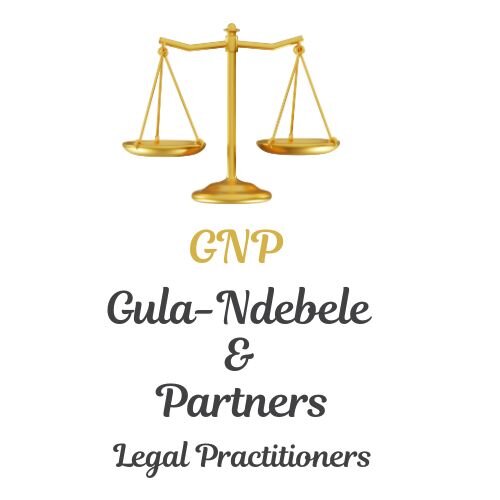Best Private Equity Lawyers in Bulawayo
Share your needs with us, get contacted by law firms.
Free. Takes 2 min.
List of the best lawyers in Bulawayo, Zimbabwe
About Private Equity Law in Bulawayo, Zimbabwe
Private equity law in Bulawayo, Zimbabwe focuses on the legal aspects of investments made into private companies that are not listed on public stock exchanges. Private equity involves individuals, institutional investors, or firms providing capital to startups, growing businesses, or established companies looking to expand, restructure, or innovate. This form of investment can be crucial for the development of businesses in Bulawayo and is governed by a complex mix of local regulations and international best practices.
In Bulawayo, as the business hub of southern Zimbabwe, private equity activities are gaining interest due to the city's dynamic commercial landscape and the region's growing entrepreneurial spirit. Local laws set the framework for how private equity transactions are conducted, and compliance is essential to protect the interests of all parties involved.
Why You May Need a Lawyer
Private equity transactions are intricate and often involve substantial sums of money, multiple stakeholders, and complex agreements. Here are some situations where legal assistance is essential in Bulawayo:
- Negotiating and drafting investment agreements
- Conducting due diligence on target companies
- Structuring private equity funds or partnerships
- Adhering to regulatory requirements imposed by Zimbabwean authorities
- Managing disputes among investors or between investors and companies
- Ensuring intellectual property and data protection compliance
- Facilitating exits through sales, IPOs, or other strategies
- Understanding tax obligations and potential liabilities
The involvement of a lawyer experienced in private equity ensures compliance, minimizes risk, and protects your financial interests during every phase of the investment process.
Local Laws Overview
Zimbabwe's legal framework for private equity is shaped by national laws and specific regulations that affect how private equity deals are conducted in Bulawayo. Some of the key legal aspects include:
- Company Law: The Companies and Other Business Entities Act (Chapter 24:31) outlines the establishment, operation, and regulation of companies that may receive private equity investments.
- Reserve Bank of Zimbabwe Regulations: All foreign investments, including private equity transactions, are subject to approval and oversight to manage currency flows and foreign direct investment protocols.
- Zimbabwe Investment and Development Agency (ZIDA): ZIDA is responsible for facilitating and regulating all investment activities in Zimbabwe, offering guidelines and incentives for private equity investors.
- Taxation: Private equity transactions may attract capital gains tax, value added tax, and other specific duties outlined by the Zimbabwe Revenue Authority.
- Exchange Controls: Movement of funds across borders, repatriation of profits, and currency exchanges are strictly regulated and require legal compliance.
- Employment Law: Investments that involve mergers, acquisitions, or restructuring must comply with labor regulations to ensure rights of employees are protected.
- Competition and Anti-Trust Regulations: Large transactions may require notification to the Competition and Tariff Commission to prevent monopolistic practices.
It is vital for both investors and companies in Bulawayo to have legal guidance to navigate these laws efficiently.
Frequently Asked Questions
What is private equity?
Private equity refers to investment in private companies, as opposed to those listed on public stock exchanges. Investors provide capital in exchange for shares or partial ownership, often to fund growth or restructuring.
How is private equity regulated in Bulawayo?
Private equity in Bulawayo is regulated under Zimbabwean national law, including company law, investment regulations, and exchange control policies, all of which are enforced by various regulatory agencies.
Can foreign investors participate in private equity in Bulawayo?
Yes, foreign investors can participate subject to approval from the Reserve Bank of Zimbabwe and compliance with exchange control regulations and investment guidelines set by ZIDA.
What are the main legal risks in private equity transactions?
Legal risks include non-compliance with local laws, unclear ownership structures, hidden liabilities in target companies, tax disputes, and potential regulatory changes affecting investments.
Do I need government approval for a private equity investment?
Most private equity investments, especially those involving foreign investors or cross-border transactions, require approval from the Reserve Bank of Zimbabwe and registration with ZIDA.
What is due diligence in private equity?
Due diligence is a legal and financial review of a target company before investing. It helps to identify risks, verify business information, and ensure the investment is sound.
Are there incentives for private equity investors?
Zimbabwe offers certain incentives through ZIDA, such as tax rebates and benefits in specified sectors, to attract private investors, but these are subject to specific qualifications.
How are private equity funds structured in Zimbabwe?
They are usually set up as local or offshore partnerships, trusts, or companies, often in line with the Companies and Other Business Entities Act, depending on the investors’ needs.
What happens in case of disputes?
Disputes can be resolved through negotiation, mediation, or formal litigation in Zimbabwean courts. Some agreements also include arbitration clauses for quicker resolution.
How do I exit a private equity investment in Bulawayo?
Exits can occur through selling shares to other investors, company buybacks, mergers and acquisitions, or public listings. Each method requires careful legal planning and regulatory compliance.
Additional Resources
- Zimbabwe Investment and Development Agency (ZIDA)
- Reserve Bank of Zimbabwe (RBZ)
- Zimbabwe Revenue Authority (ZIMRA)
- Competition and Tariff Commission
- Ministry of Justice, Legal and Parliamentary Affairs
- Local law firms in Bulawayo specializing in corporate and investment law
- Bulawayo Chamber of Commerce for business networking and support
Next Steps
If you are considering a private equity investment or need legal assistance with an existing deal in Bulawayo, start by consulting a local lawyer specialized in corporate or investment law. Gather all relevant documentation, including company records, proposed agreements, and investment plans. It is also wise to contact regulatory bodies like ZIDA or the RBZ early to clarify requirements and application processes. Always conduct thorough due diligence and ensure all legal aspects are covered to protect your interests. Professional legal advice can help you navigate the complexities of private equity, minimize risks, and ensure compliance with Zimbabwe’s laws at every stage of your investment journey.
Lawzana helps you find the best lawyers and law firms in Bulawayo through a curated and pre-screened list of qualified legal professionals. Our platform offers rankings and detailed profiles of attorneys and law firms, allowing you to compare based on practice areas, including Private Equity, experience, and client feedback.
Each profile includes a description of the firm's areas of practice, client reviews, team members and partners, year of establishment, spoken languages, office locations, contact information, social media presence, and any published articles or resources. Most firms on our platform speak English and are experienced in both local and international legal matters.
Get a quote from top-rated law firms in Bulawayo, Zimbabwe — quickly, securely, and without unnecessary hassle.
Disclaimer:
The information provided on this page is for general informational purposes only and does not constitute legal advice. While we strive to ensure the accuracy and relevance of the content, legal information may change over time, and interpretations of the law can vary. You should always consult with a qualified legal professional for advice specific to your situation.
We disclaim all liability for actions taken or not taken based on the content of this page. If you believe any information is incorrect or outdated, please contact us, and we will review and update it where appropriate.












